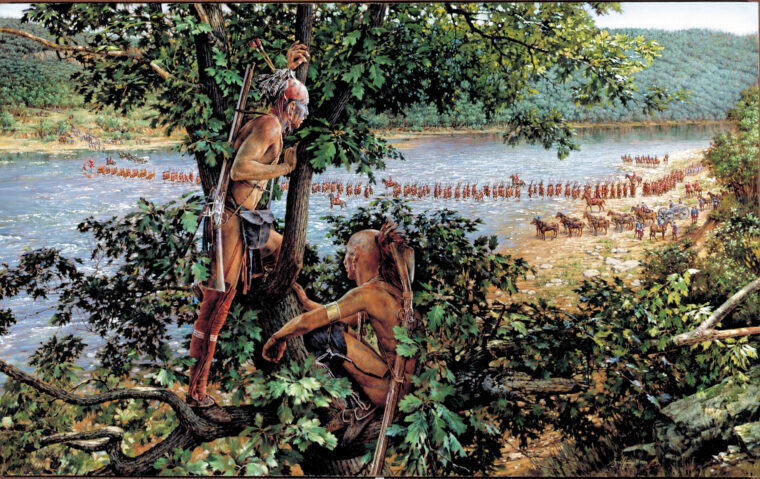
American Revolution
Major General Braddock’s March on Fort Duquesne
By Colonel John P. Sinnott AUS (Ret.)Seldom was the hand of fate so clearly exposed in the affairs of men as it did during the French and Indian War when Maj. Read more
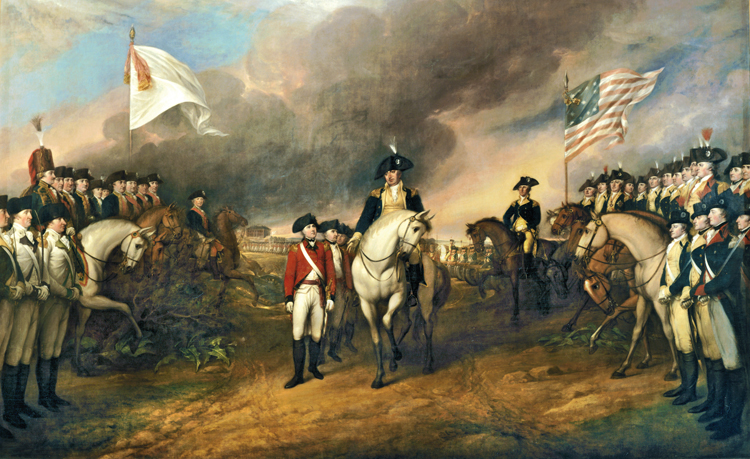

American Revolution
Seldom was the hand of fate so clearly exposed in the affairs of men as it did during the French and Indian War when Maj. Read more
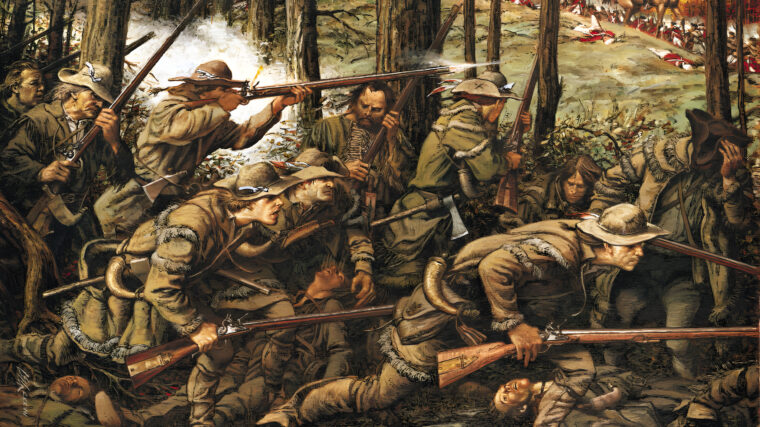
American Revolution
The brightly uniformed soldiers that George III of England dispatched to subjugate the rebellious citizens of his North American colonies were at that time possibly the world’s best. Read more
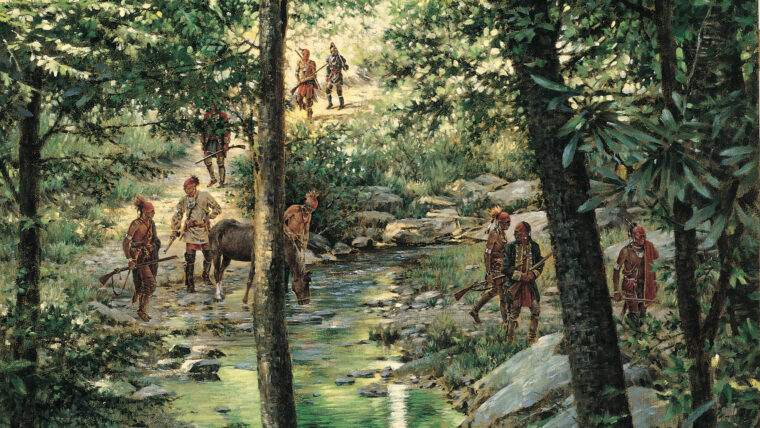
American Revolution
In the 1780s the Founding Fathers of the United States didn’t so much revise the old Articles of Confederation as devise an entirely new government as set forth in the Constitution. Read more
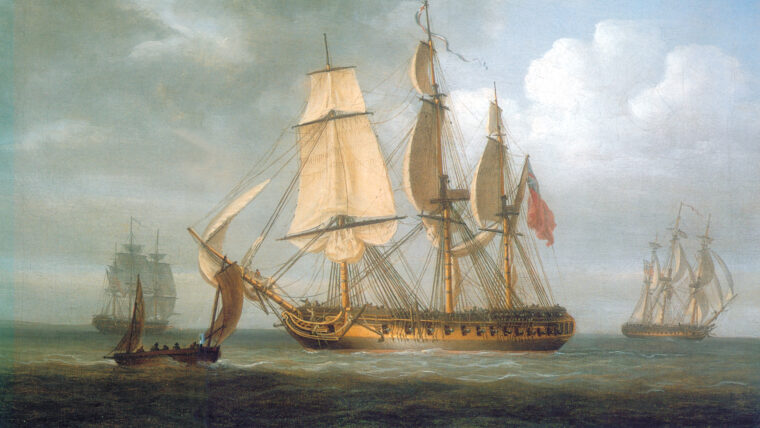
American Revolution
Looking back on the age of fighting sail, a common image is that of battles between huge ships of the line, led by such famous admirals as Nelson and Collingwood. Read more
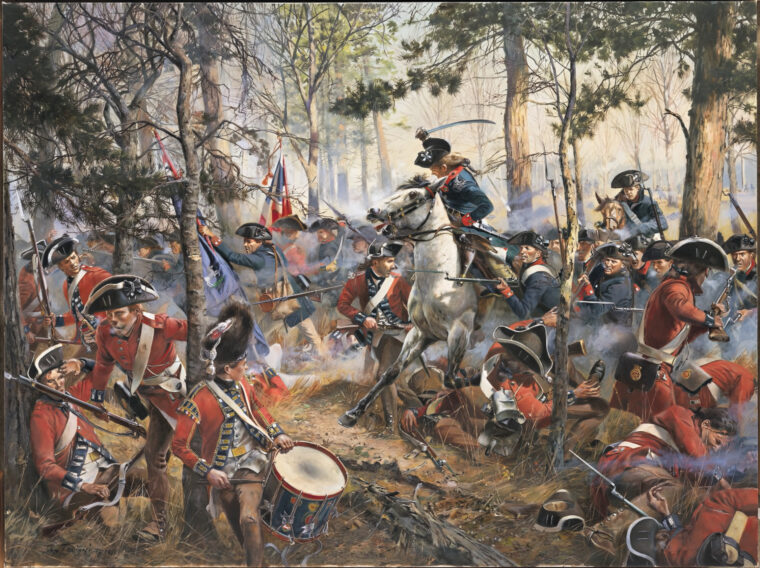
American Revolution
Richard Hovenden of His Majesty’s British Legion Dragoons cautiously urged his tired horse through a parklike expanse of tall trees that marked the entrance to a South Carolina country crossroads junction called locally “Hannah’s Cowpens.” Read more
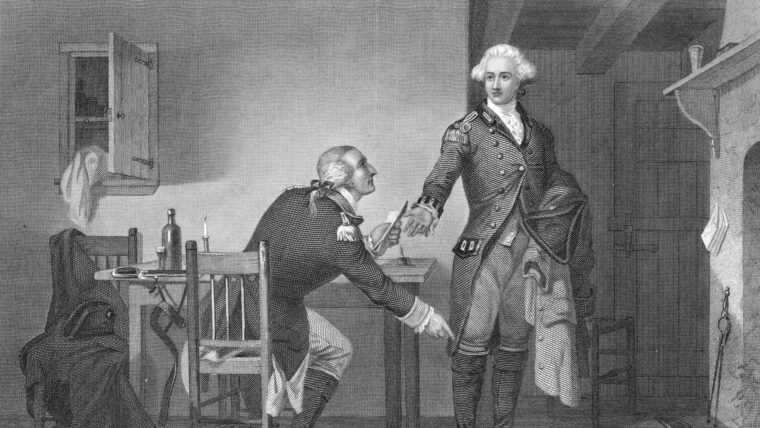
American Revolution
The American Revolution was a proving ground for American spy operations. General George Washington’s use of deception, covert activities, secret inks, and informers was a model for future spymasters. Read more
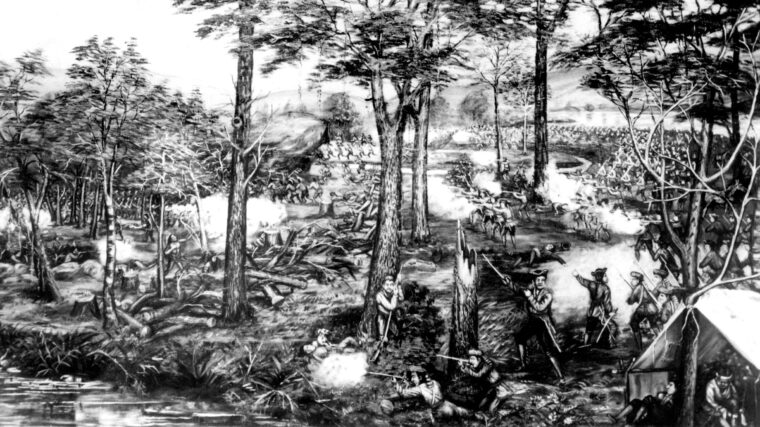
American Revolution
In the lengthening shadows of a late October afternoon, a column of tired marchers attired in dusty, fringed hunting dress emerged from the trees along the north bank of the Kanawha River, raising an exhilarating shout upon sighting its confluence with the Ohio. Read more
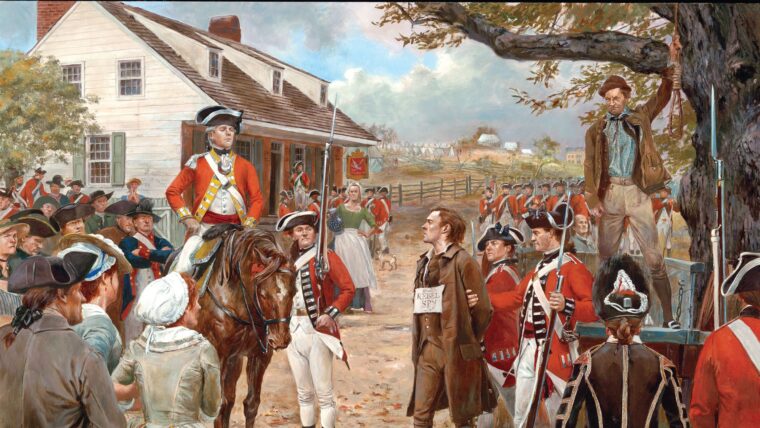
American Revolution
On the night of September 16, 1776, young Nathan Hale, a captain in the Continental Army, set out across Long Island Sound from his native Connecticut on the armed sloop Schuyler. Read more
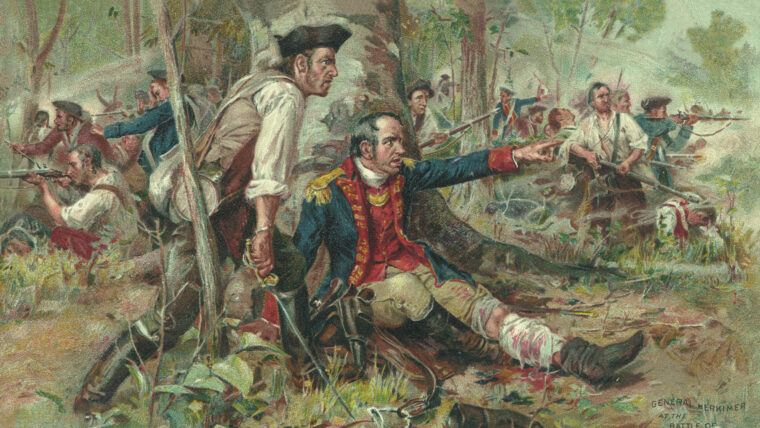
American Revolution
The year 1776 ended on a high note for Washington’s Continental Army despite its earlier devastating defeats on Long Island and Manhattan. Read more
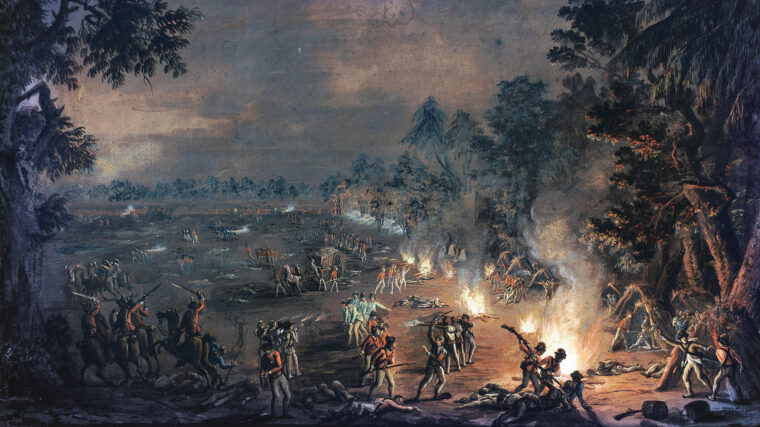
American Revolution
On a gloomy Friday morning, September 26, 1777, an advance party of the British Army marched into Philadelphia to take possession of the city. Read more
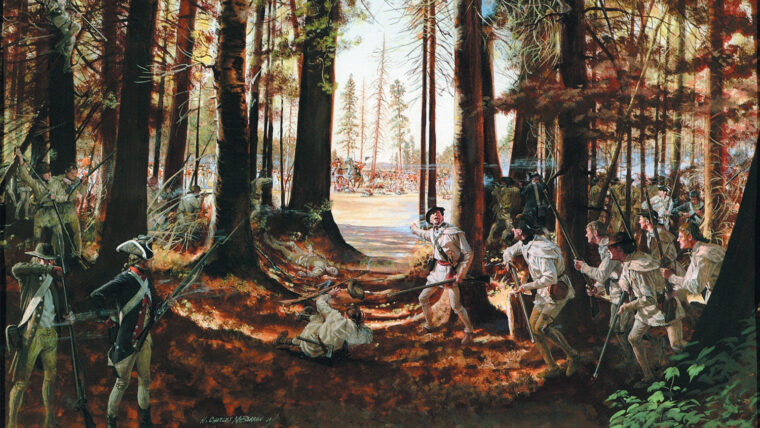
American Revolution
By the mid-1700’s, the American long rifle had acquired an almost supernatural reputation. To the British troops who were unfortunate enough to come up against it in combat during the Revolutionary War, the rifle was more an affliction than a weapon. Read more
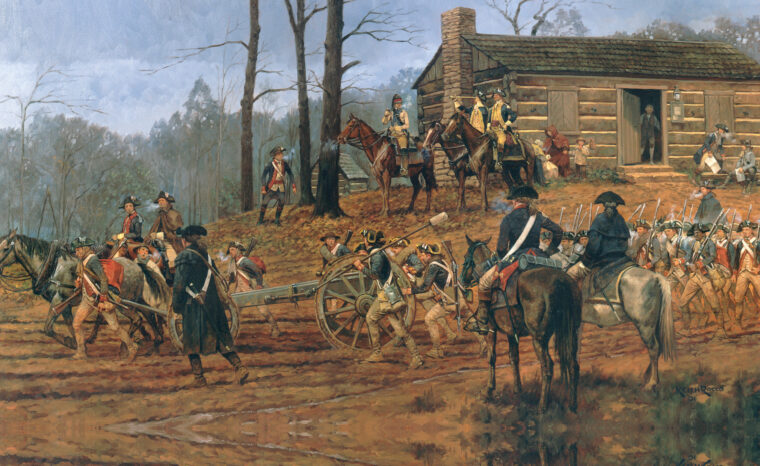
American Revolution
American militiamen with their lungs heaving, hearts pounding, and eyes bulging with terror ran for their lives as soon as the British and Hessian troops in their bright red and blue uniforms came ashore at Kips Bay on Manhattan Island. Read more
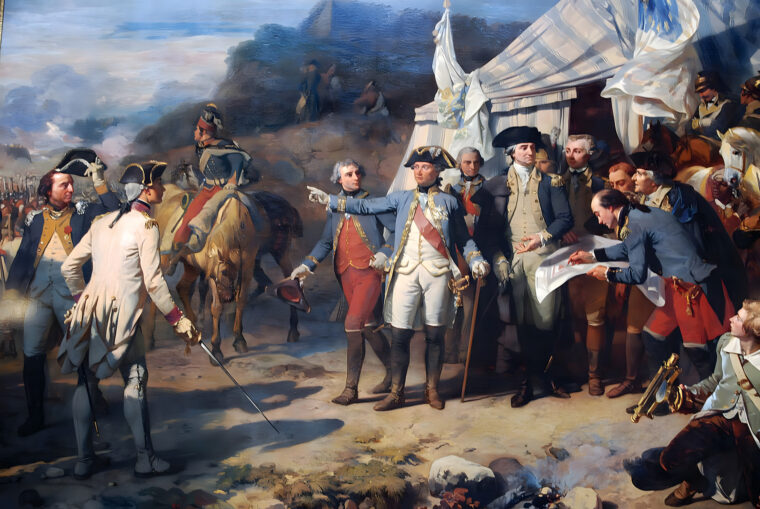
American Revolution
At nightfall on October 14, 1781, 150 British and Hessian soldiers sheltered in two small earthen fortifications at Yorktown, Virginia. Read more
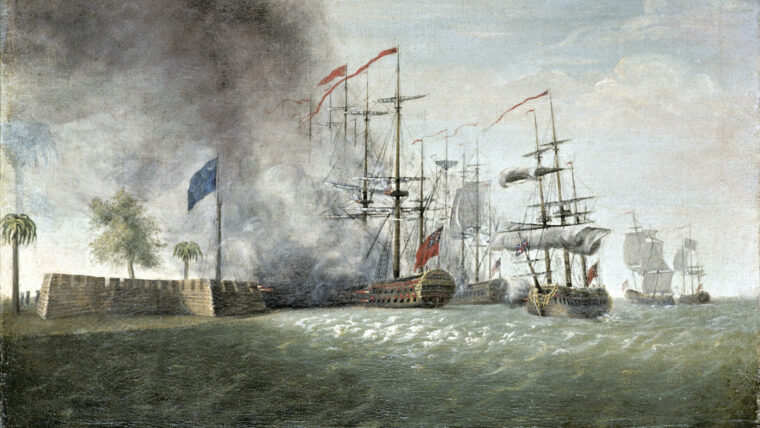
American Revolution
By the early 1770s, with a full century of settlement already behind it, Charleston, S.C., had come into its own as a thriving urban center. Read more
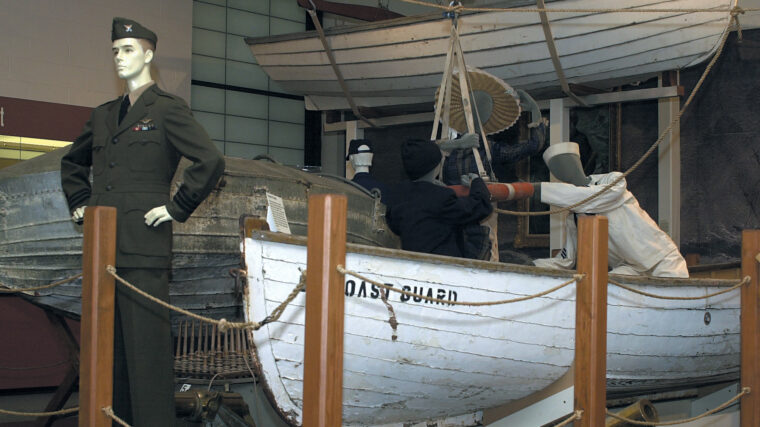
American Revolution
On August 4, 1790, at the urging of Secretary of the Treasury Alexander Hamilton, the United States Congress authorized the construction of 10 armed revenue cutters. Read more

American Revolution
The world’s first combat submarine was something of an afterthought on the part of its creator. The revolutionary craft, known as the Turtle for its odd profile, was the progeny of David Bushnell, who was born in 1742 in West Saybrook, Conn. Read more
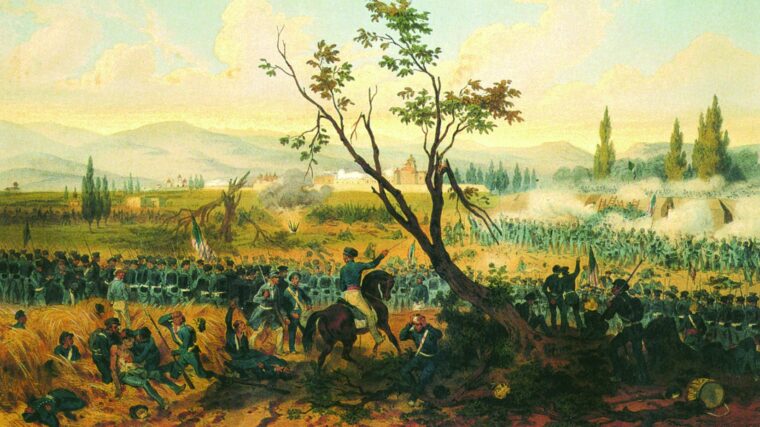
American Revolution
Men have been reporting their wars almost as long as they have fighting them. The first prehistoric cave drawings depicted hunters bringing down wild animals, and spoken accounts of battles, large and small, formed the starting point for the oral tradition of history. Read more
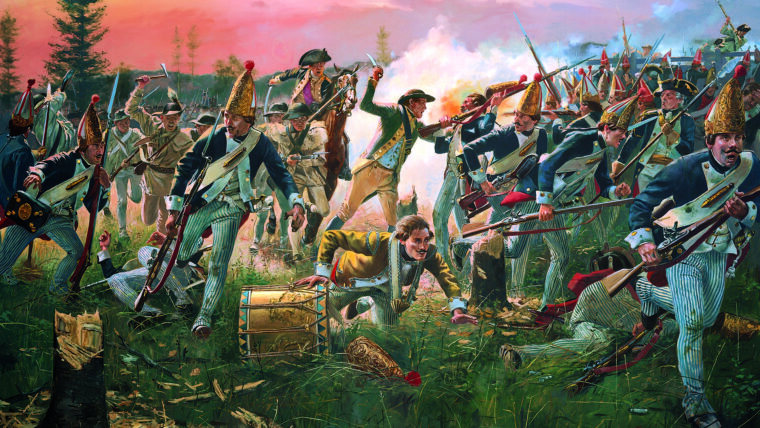
American Revolution
“He is at this time transporting large armies of foreign mercenaries to complete the works of death, desolation and tyranny,” Thomas Jefferson said of King George III in the Declaration of Independence. Read more
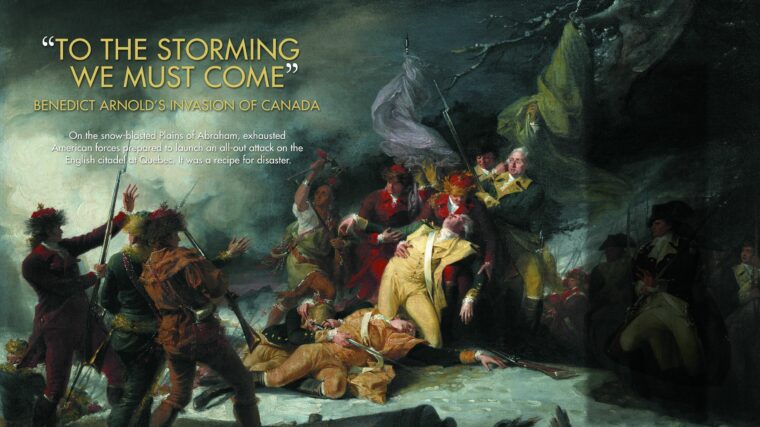
American Revolution
Fresh from his capture of Fort Ticonderoga, Colonel Benedict Arnold in the summer of 1775 lobbied hard to the Continental Congress for authorization to lead an expedition to the lower St. Read more

American Revolution
Of all the generals who fought on the Patriot side during the American Revolution, none was more renowned than New York City native William Alexander, better known to his contemporaries as “Lord Stirling.” Read more